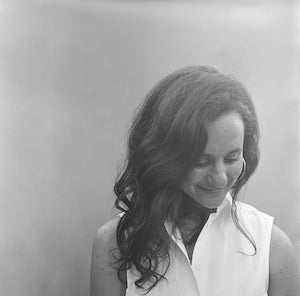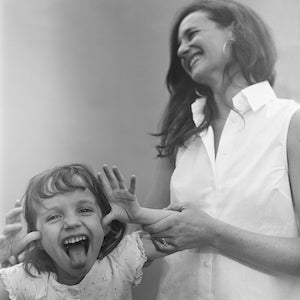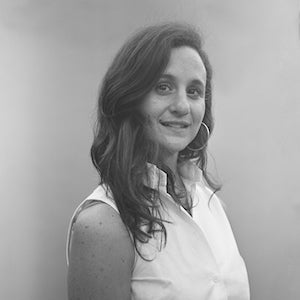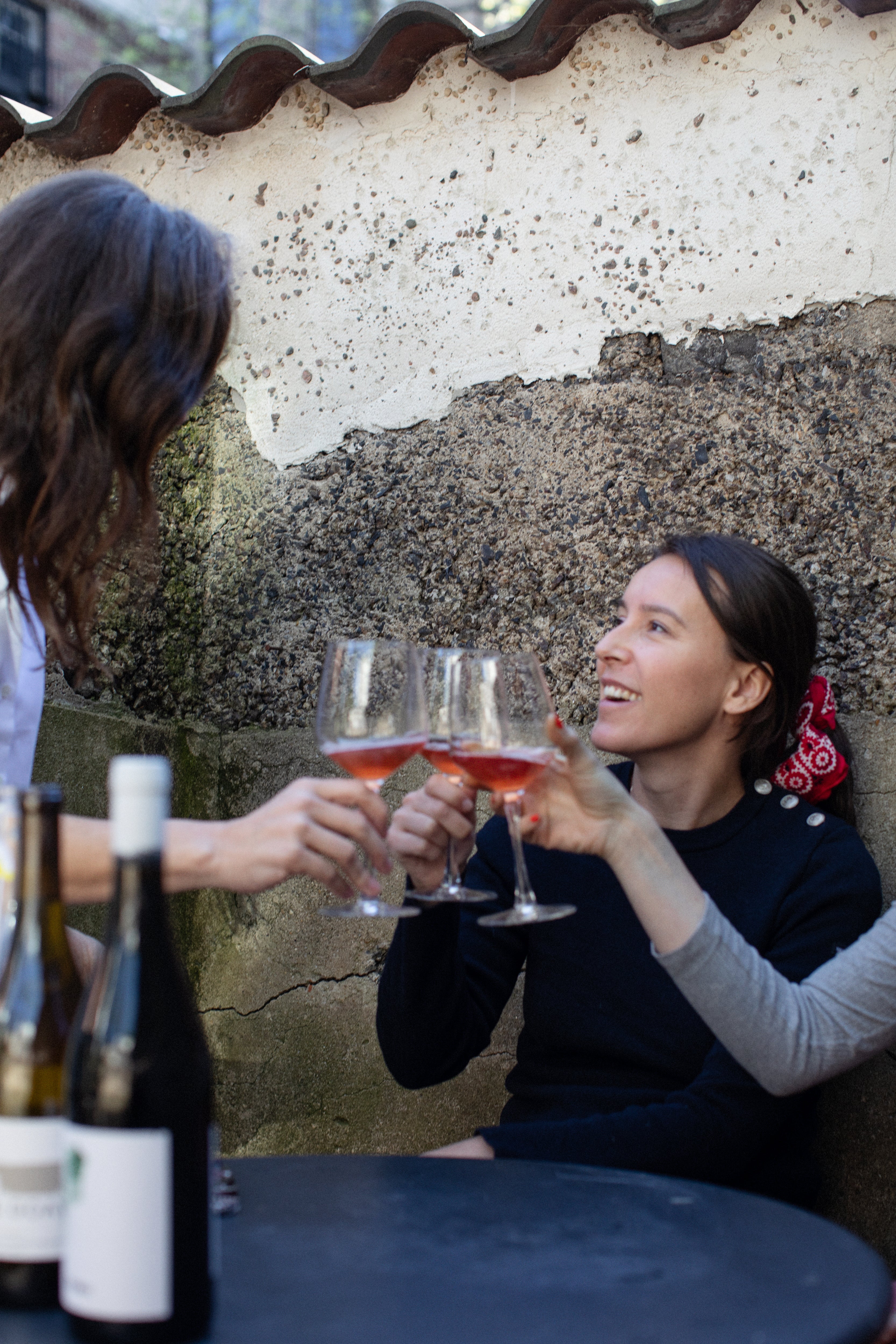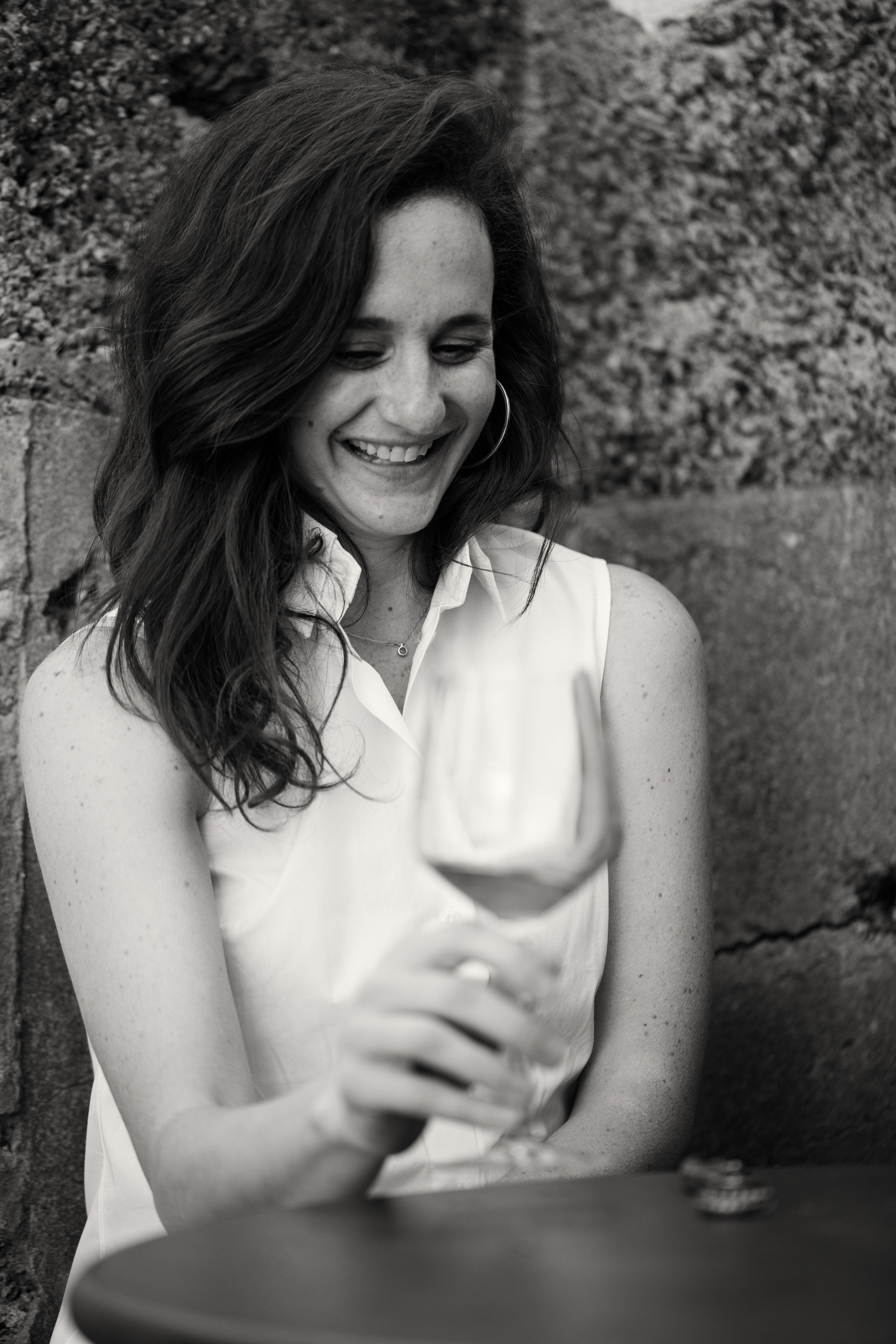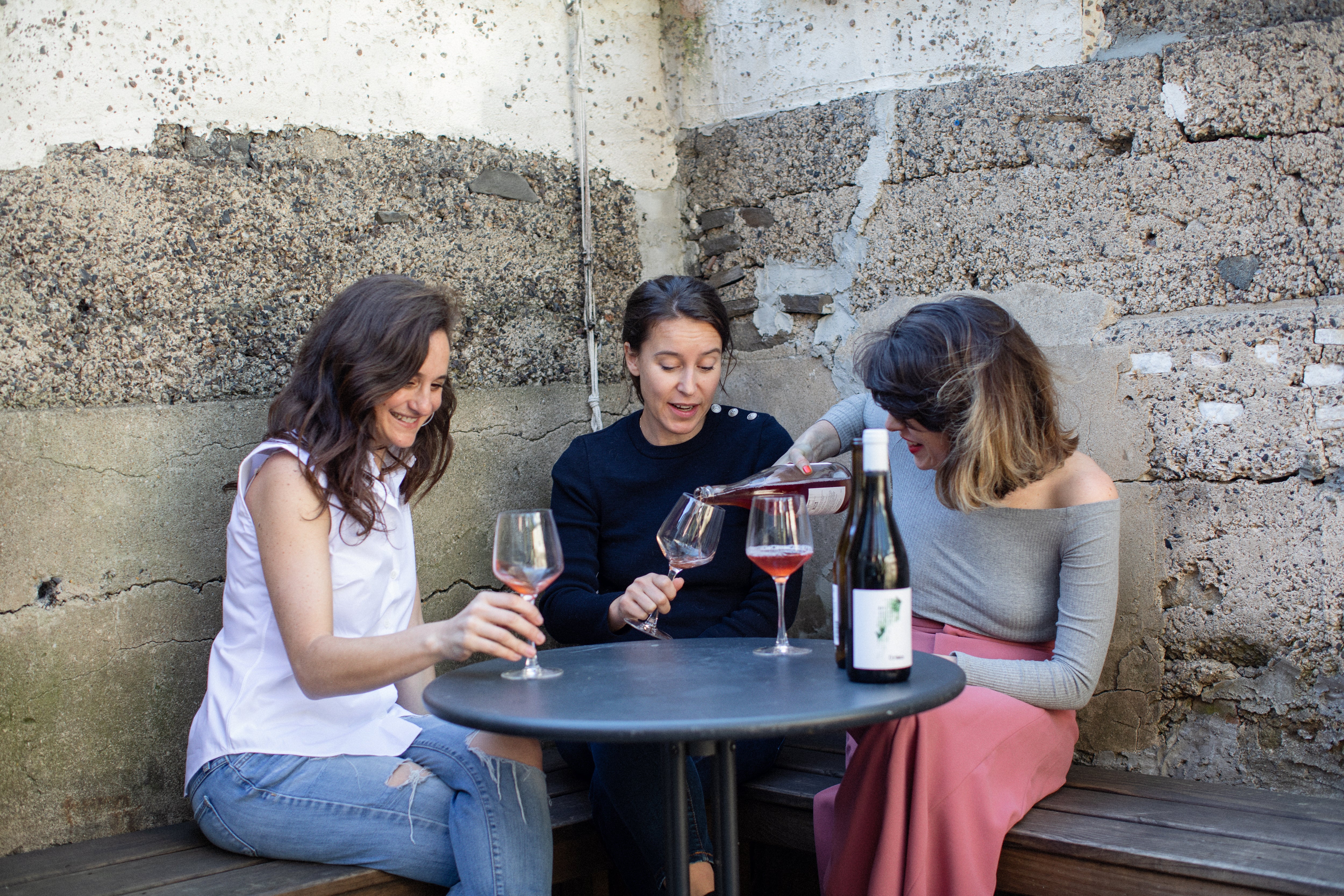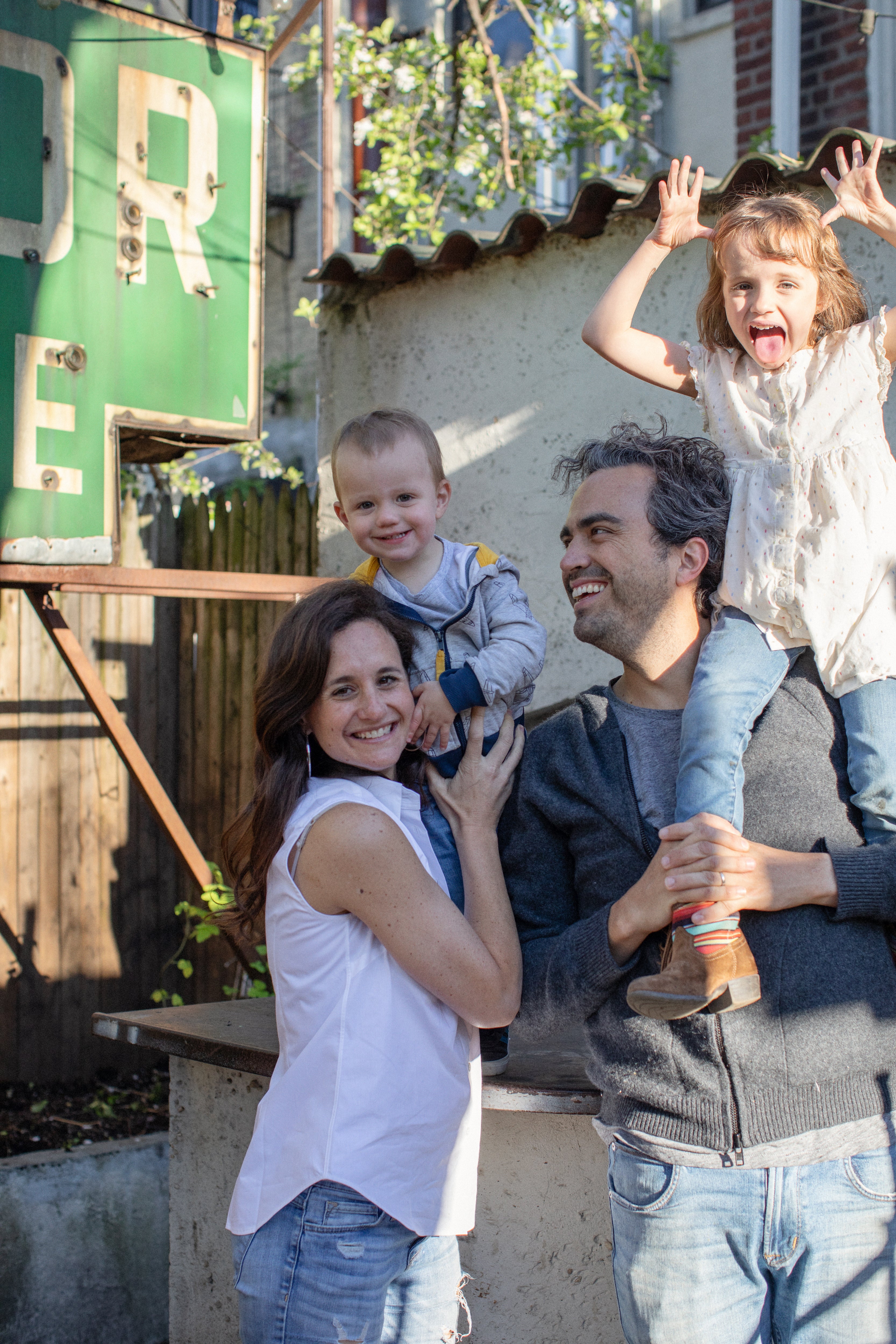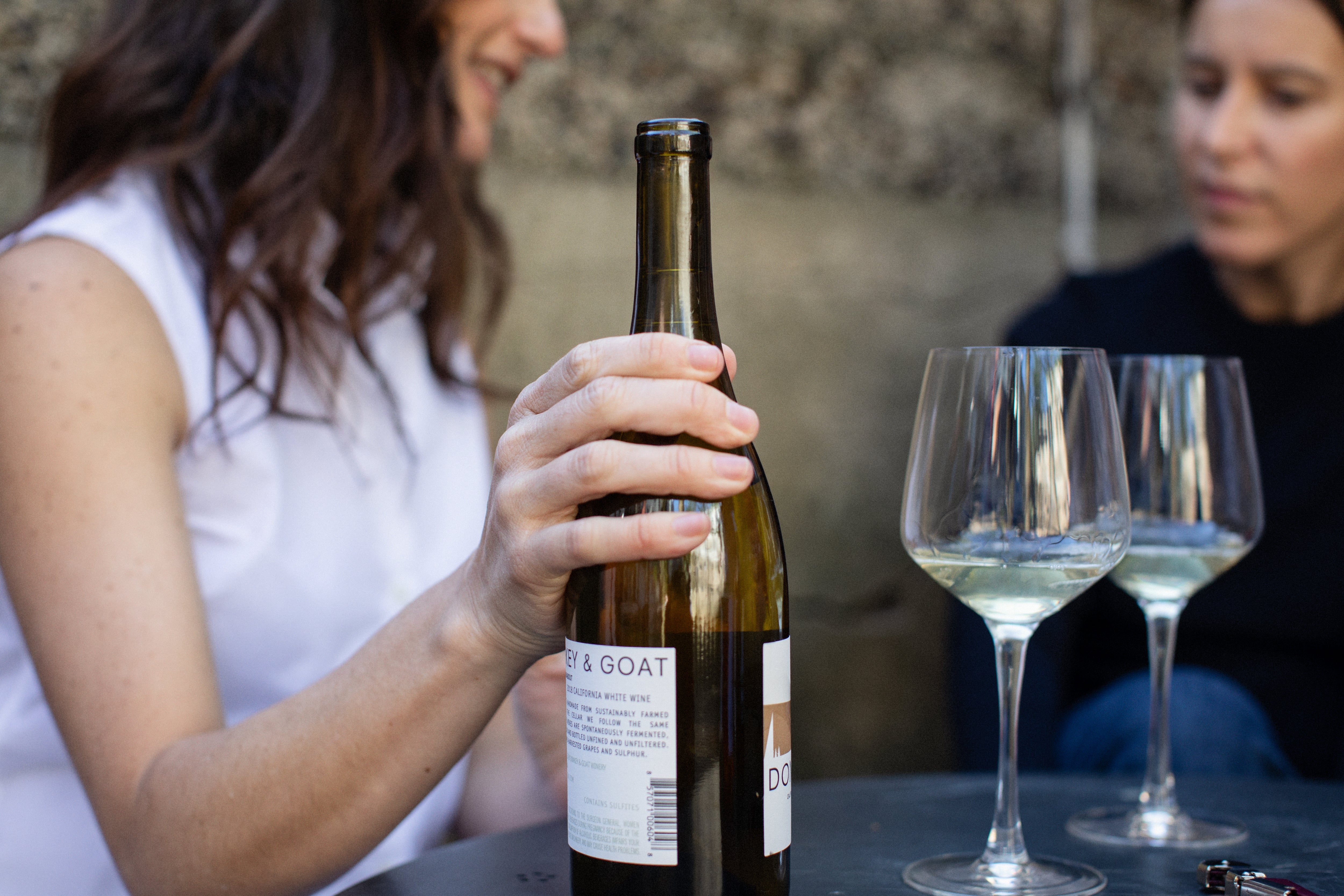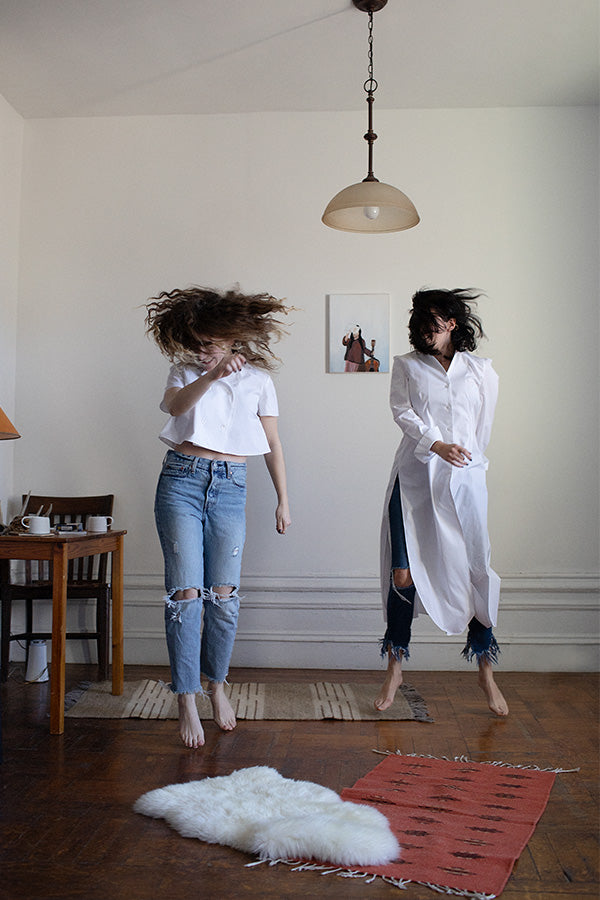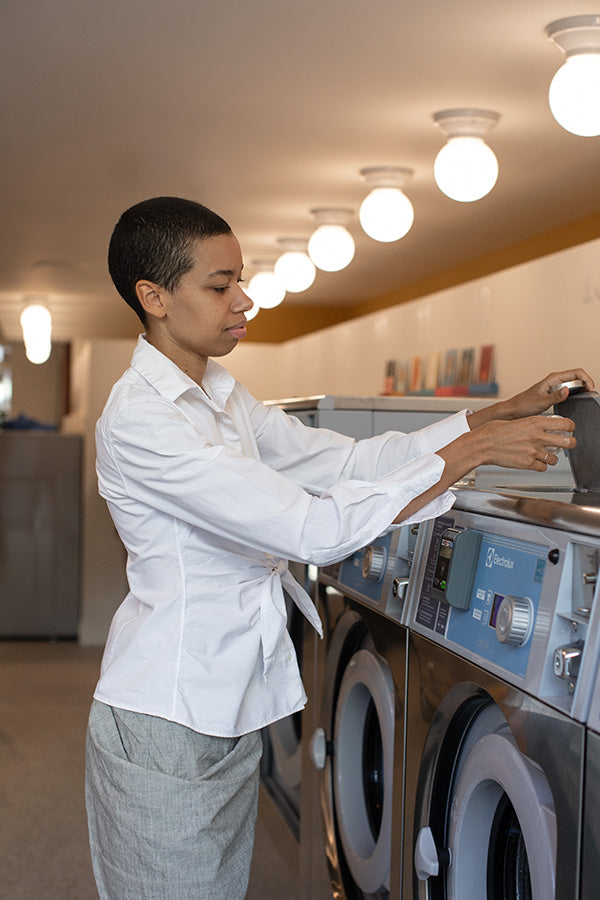Tamy Rofe is a three-time (at least) entrepreneur. She and her husband Felipe started their journey by hosting dinners at their house. They now run Colonia Verde, a favorite neighborhood restaurant in Fort Greene, Brooklyn, and a catering company, Comparti. I sat down with Tamy at Colonia Verde one morning before the restaurant opened.
Althea:Before starting your first restaurant Comodo, both you and your husband worked in marketing – you were branding and he was in advertising. Tell me a little bit about your background and how you two met?
Tamy:We actually met in Mexico City. That's where I started my career as a strategic planner and he was an account guy. We met in the elevator back in the day when we used to smoke cigarettes, so we would go for breaks together. We became good friends. I was dating somebody and he was dating somebody, so nothing happened there but that's where we met. And then life took me to Miami, and he ended up in Miami. And then life took him to New York, and I ended up in New York, and many years later we started dating. But we were very good friends before.
I started my career at Ogilvy, and then worked for a couple of advertising agencies in Miami. Here in New York I was at mcgarrybowen working with big brands. Felipe and I were already married by then. We started doing dinners at home because it was obvious that Felipe did not enjoy what he was doing, and I could see that he was not fulfilled. He loves to cook and he has such a natural talent for it, he is untrained but the flavor was always there. We just started throwing dinner parties at home. We had this rule of always inviting different people and always using different recipes, and I would write about it.
A:What made you want to write about it?
T:That was sort of what I did as a brand planner. You do ethnography; there's a sociological and cultural aspect to it. I was very intrigued by New York and how it brings together so many different people from all kinds of backgrounds. That was a draw for me to come to New York – we’re all misfits with very different stories. I was very intrigued about what happens when you combine people from different backgrounds. We would invite a woman that has been living in New York forever, a 50 year old that did sound engineering for theater, and then like a young ad guy – and with that mix of people, what happens when you eat and you drink wine? People just open up and tell their most intimate stories.
I would write about what happened that night and who was there. It was just a fun project for us, without a goal, just to fulfill ourselves. And then it just catapulted because New York Magazine came up to one and they wrote about it, and then the health department showed up at our house because we were serving to the public, so we had to shut that down. Then we started doing pop ups around the city, and then we were like “let's do it.” That's when we opened our first restaurant Comodo on Macdougal street. It was like an experiment. It was 20 seats and it felt like a dinner party. I was doing advertising during the day and hosting at night. Felipe had stopped working, and I did soon after. It was too fun being at the restaurant.
I remember I was pitching my last project to [a fast food chain] and we got it. It was thrilling to get the job because we came up with this big idea, but then on the other hand I had Felipe making everything from scratch at Comodo. It didn’t feel right. So I quit and said “let’s go all in.”
Soon after that, we found this place in Fort Greene and we fell in love with it. There was no sign or anything; it was shuttered. We fell in love with Fort Greene. There's something very beautiful and interesting about Fort Greene, with the diversity of people. Being an immigrant and coming here and seeing so many different people coming together, we felt like we had found a home or a hub for us to continue doing what we had been doing, from our house to the pop ups to Comodo in the West Village. We said “ok, it’s too soon to open something else, but we can't pass up this opportunity. This place has something.” And that was it.
A:I want to go back and talk about specific moments that you touched on. It's a big deal to go from having a dinner party at your house to opening a restaurant. Tell me how that came to be; what made you really go for it?
T:I think by the time we were doing pop ups, it had clearly become what Felipe had to do. It just made so much sense for him. When we were doing the pop ups, he was still doing advertising at the same time, but he hated it. Then he got laid off, and that just pushed him. He was already doing something he loved, so he said “I'm going to give [cooking] a shot. I'm not to jump into another job in advertising.” And I said, “I’m with you, let’s do it.” I wanted a partner that was super passionate about what he did.
He started looking for real estate. He walked through Macdougal street one day, and he said “I think I found the spot”. That's how it happened. He was pushed into it a little bit, but then decided to just go for it.
A:It was clear that this was his passion.
T:It was a super clear combination of passion and skill. Felipe is a chef and we are restaurateurs. You have to be a people person but you also have to be very talented with food. It's a weird combination, you either have it or you don't. It was very clear to us that he had it. So he jumped; he started.
A: It's interesting to be a both chef and a restaurateur, that's not always the case. Sometimes those are different people; it's rare to have them both in one person.
T:There are some great chefs who are very meticulous and introverted, and that’s a different breed. Felipe is truly split. He really is a talented chef and he loves the hosting part, what happens on the floor when people get together. I feel that's the root of what attracted the two of us to being restaurateurs. There is an artistry to it, to people opening up and what happens on the front side of a restaurant.
We have this saying with all of our projects: “la comida compartida sabe mejor,” which means “food tastes better when shared.” That is our mantra with everything that we do. It's not that food and drink is secondary, but it's for the purpose of letting people open up. They're going to be moved by conversations and by having a shelter where we can really connect in a city that's crazy and busy, where you never have time to sit down and connect and talk about life.
A: That's so important, especially in the city, and in this time. You guys have been doing it for a while, but it seems even more relevant today.
T:You have to step back a little bit and we hope that this place gives people that. That’s our ultimate goal.
A: I was wondering about the open kitchen, and if that kind of allows Felipe to be more involved with the diners.
T:He stands right there (gestures to the area between the kitchen and seating). He truly is more front of house than back of house, just based on where he physically stands. He stands on this side and expedites.
A:And where are you?
T:My job now happens much more during the day and leading up to the dinner. That's when I do trainings and talk to my team. I focus on training my staff and having the staff be enthusiastic and passionate. I am here during the day, I do trainings and then I take off. I sit and watch, and I am on the floor less than I used to be. We also have two kids – both of us cannot be here every night. I have two nights that I'm here, and Felipe stays with the kids. But I observe, and I talk to the neighbors, and I'm constantly training the staff on wine.
Throughout this journey, since the dinner parties, I started getting into the world of wine. I always loved it, but I also wanted to add to the product of the restaurant and it was definitely not going to be in the kitchen. It's clear that Felipe has the kitchen talent and I don’t (laughs). I started becoming very intrigued with the wine aspect of the restaurant. I got certified as a sommelier. It was a year and a half [of study] and very intense but I loved every single second of it. That became my thing. I became the wine person.
Now I'm very intrigued with the world of natural wines. I want us to be bringing down the barriers of wine and making it more accessible, fun, and work for everybody. Wine can be so stuffy, and it's not how I am. I have made it my mission to make wine a little bit more for the people and more fun, to go with the food. The world of natural wine does that, in general. I jumped on that wagon.

